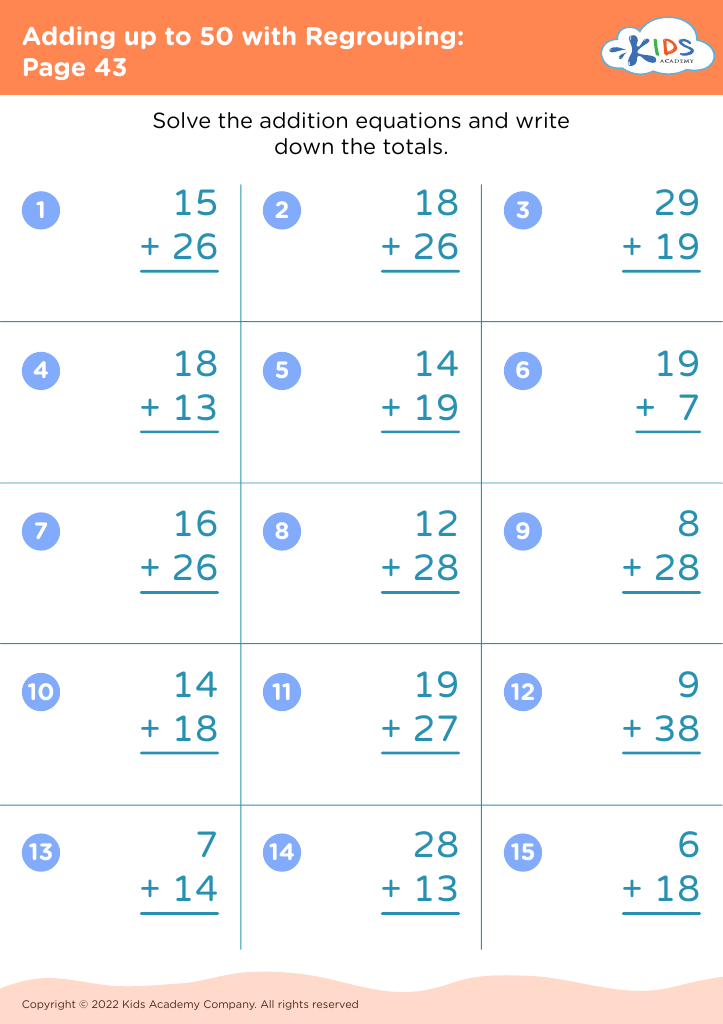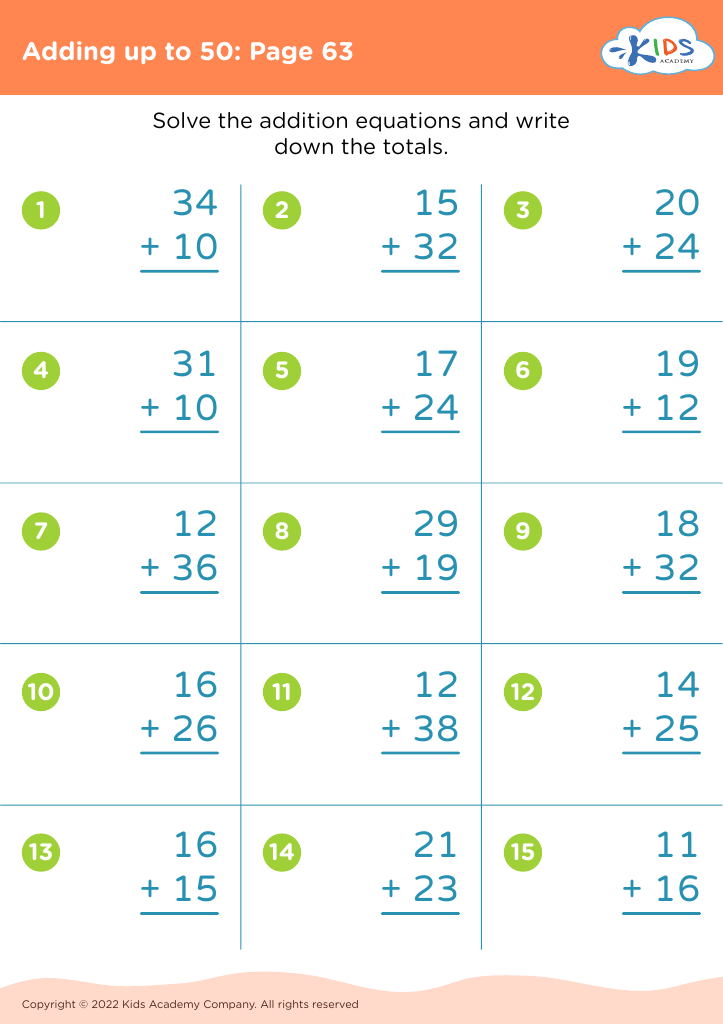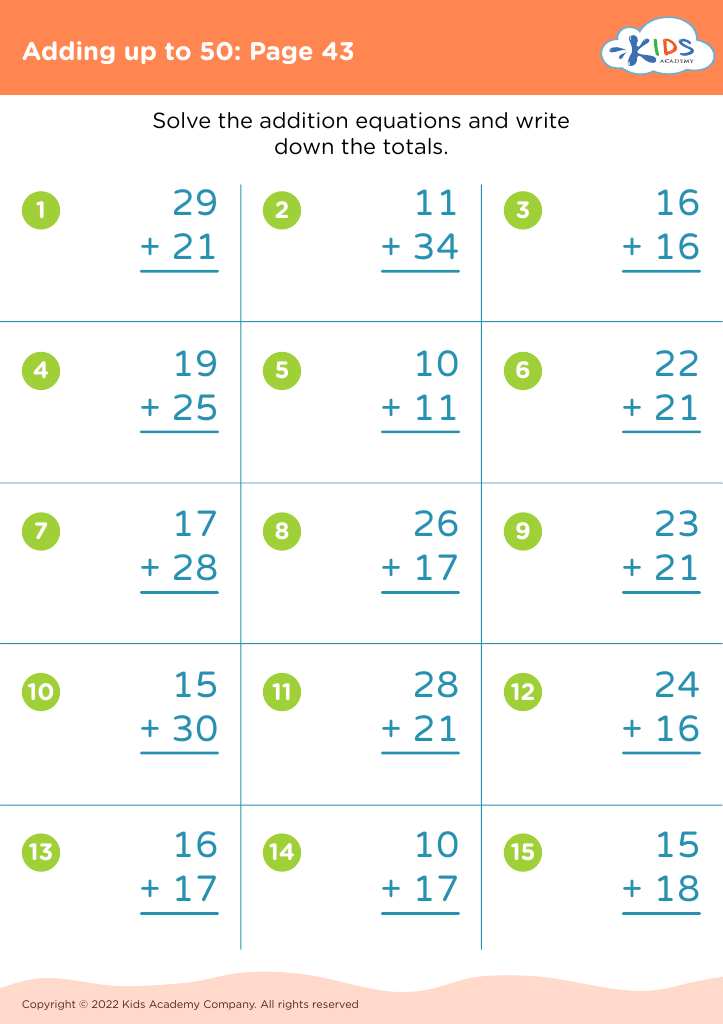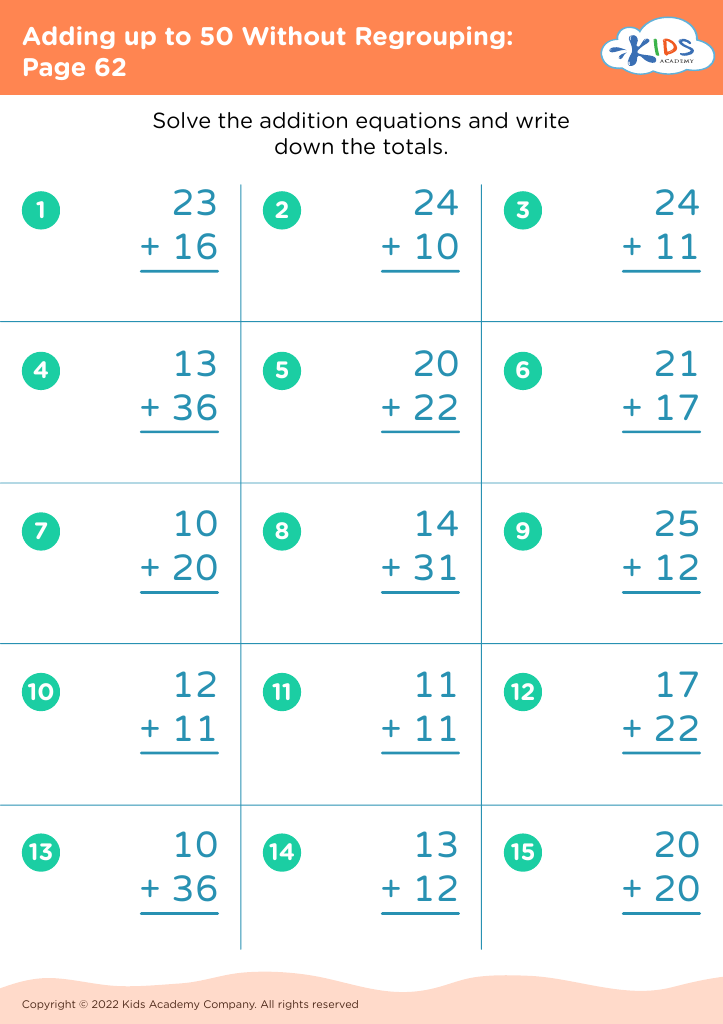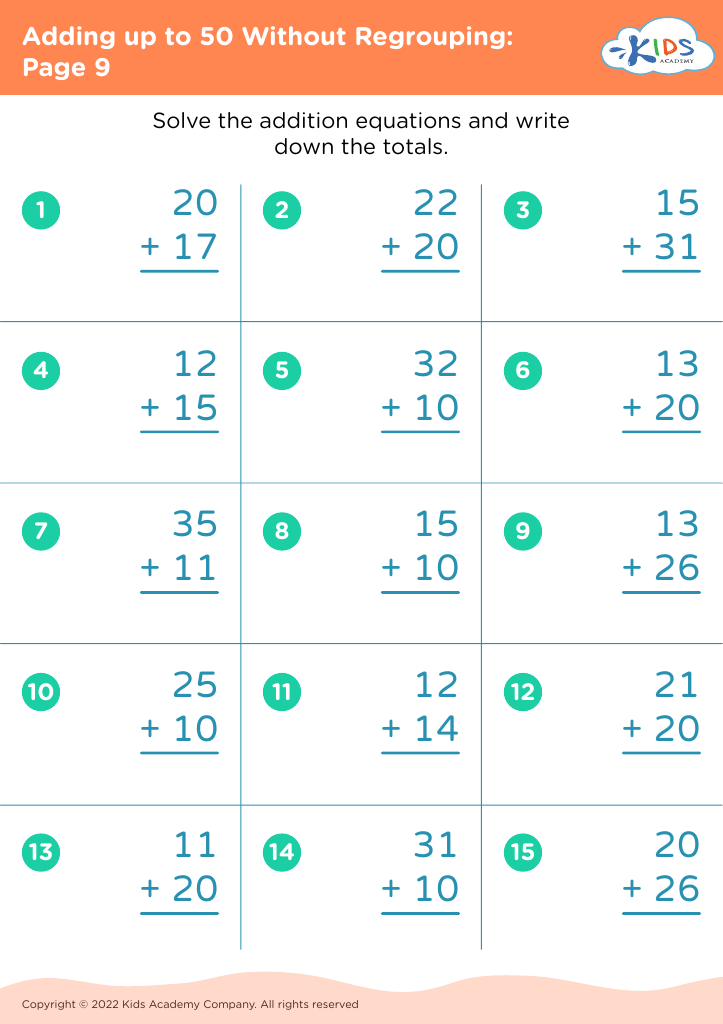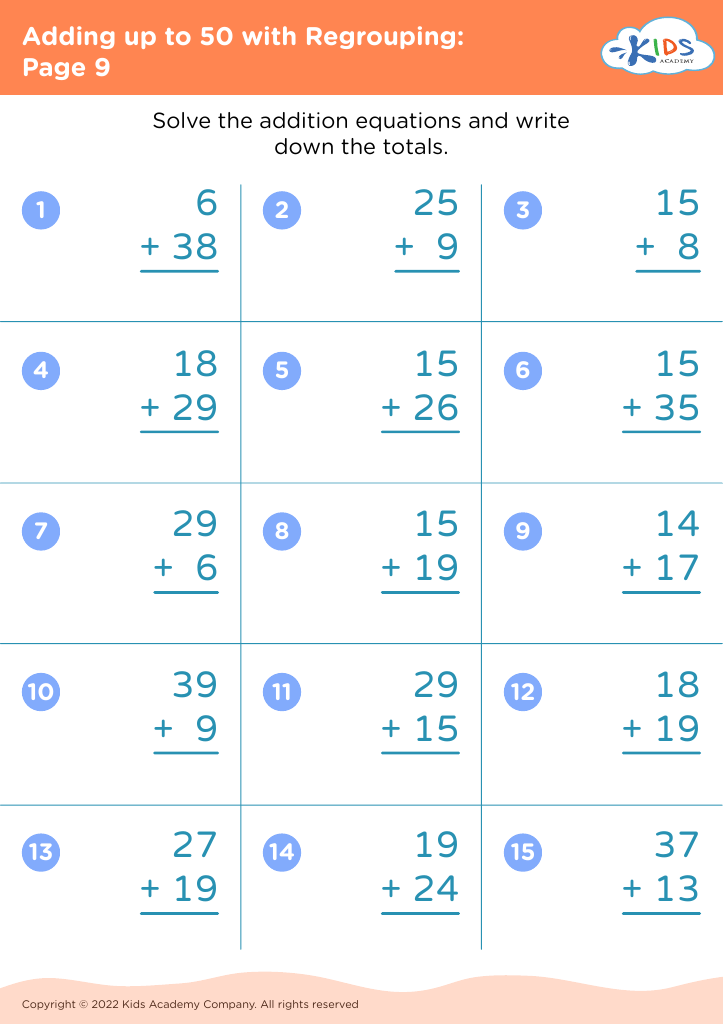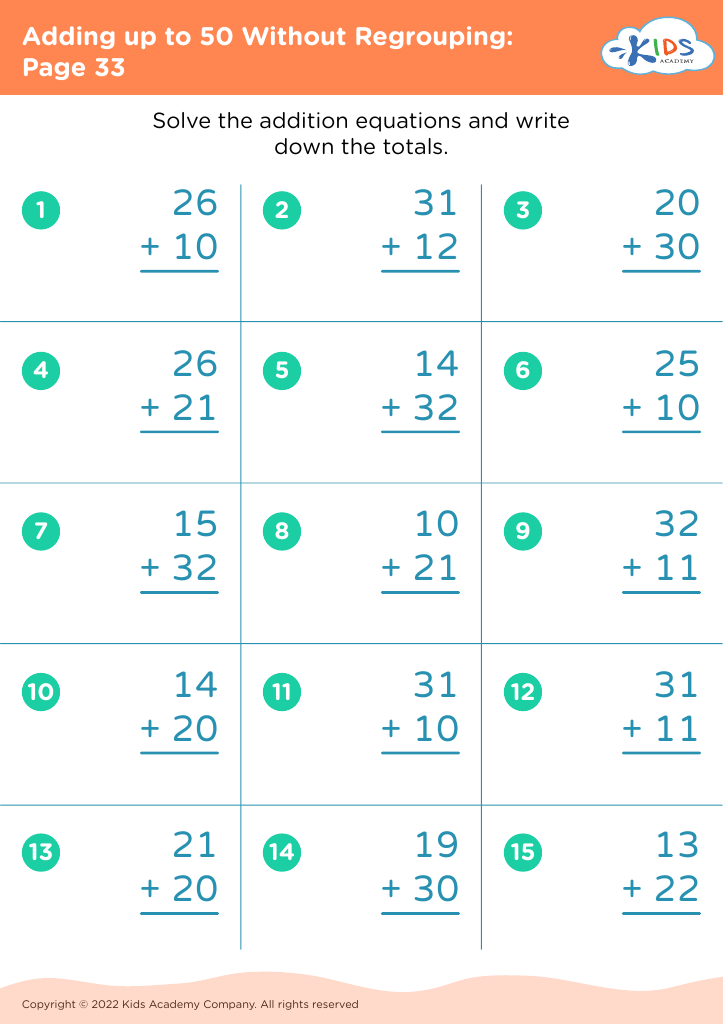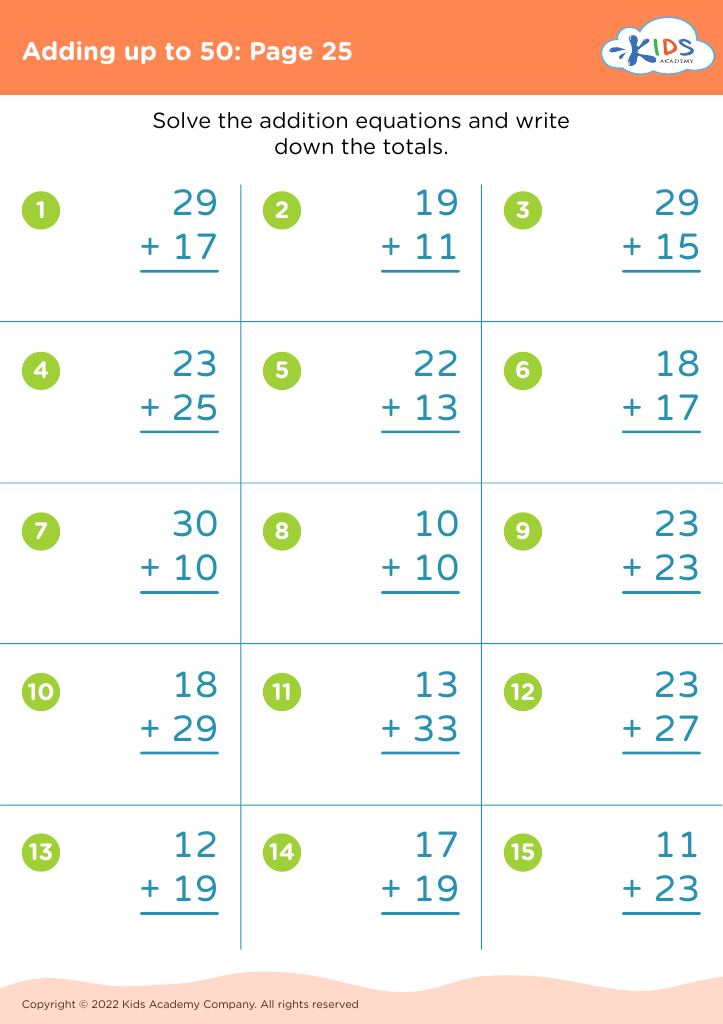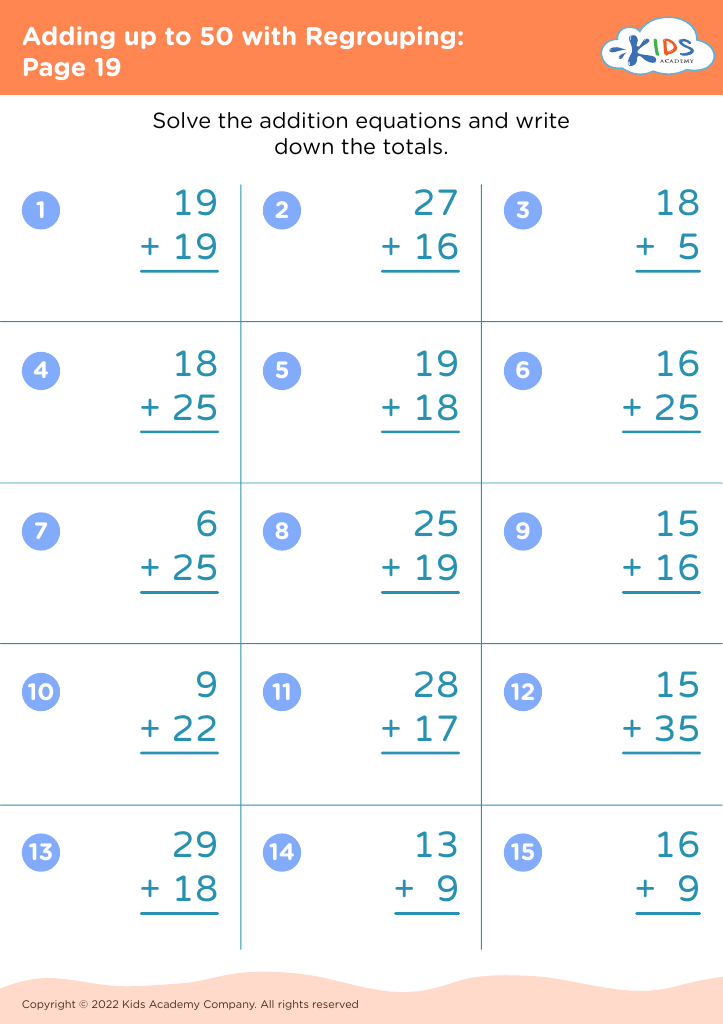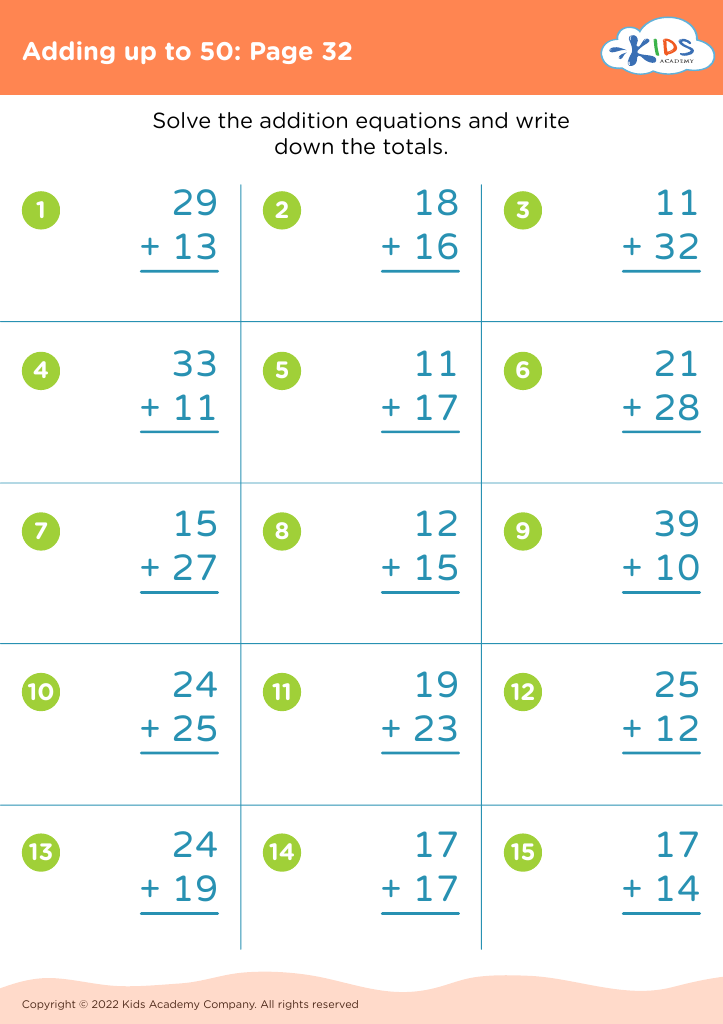Addition Practice Adding up to 50 Worksheets for Ages 4-8
16 filtered results
-
From - To
Welcome to our Addition Practice Worksheets designed for children ages 4-8! These engaging and colorful worksheets help young learners master addition skills by adding numbers up to 50. Each worksheet includes age-appropriate exercises that encourage critical thinking and problem-solving in a fun way. With various formats, such as counting objects, number lines, and simple equations, children will enjoy practicing their math skills while boosting their confidence. Perfect for classroom use or home learning, our Addition Practice Worksheets aim to strengthen foundational math abilities and set the stage for future success. Download now and watch your little ones thrive in math!
Addition practice for children aged 4-8 is crucial for several reasons. First, mastering addition lays a strong mathematical foundation. Early skills in addition help children understand more complex concepts in the future, such as subtraction, multiplication, and division. When children can confidently add numbers up to 50, they develop critical problem-solving and reasoning skills that will aid them throughout their education.
Moreover, regularly practicing addition fosters a positive attitude towards mathematics. Engaging in fun and interactive addition activities can transform learning into a joyful experience, reducing anxiety often associated with math. This early enthusiasm can lead to increased motivation and a love for learning in general.
Additionally, addition comprehension helps in real-life scenarios. Children encounter basic math daily—whether calculating change, measuring ingredients in cooking, or determining quantities when playing games. By knowing how to add efficiently, they gain a sense of independence and confidence.
Lastly, involvement in addition practice offers parents and teachers an opportunity to bond with children while reinforcing academic learning. This connection is vital for a child’s emotional and cognitive development. By prioritizing addition practice, both parents and teachers play a pivotal role in fostering skills that will impact a child's future success.


